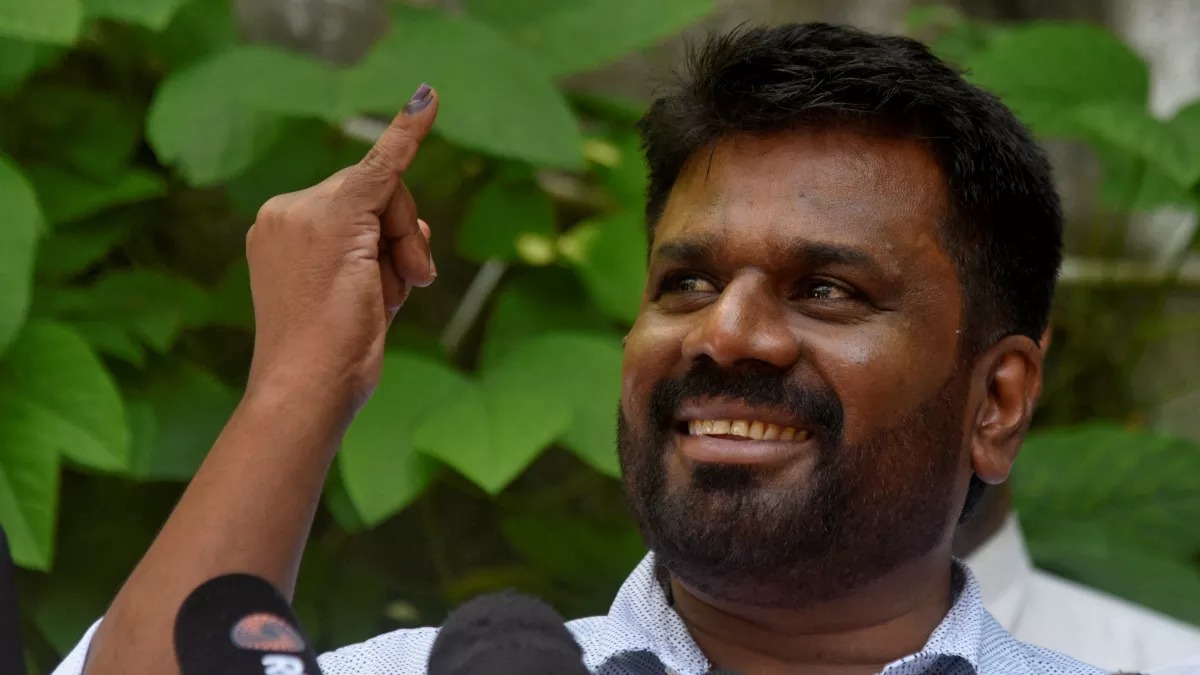
Colombo: Marxist leader Anura Kumara Dissanayake has got a huge lead in the presidential election in Sri Lanka which is facing economic crisis. Anura Kumara Dissanayake will be the next President of Sri Lanka. Dissanayake has got 49.8 percent votes. Whereas Samagi Jana Balawegaya leader Sajith Premadasa has got 25.8% votes.
Incumbent President and United National Party leader Ranil Wickremesinghe has received 16.4% of the votes. Six-time Prime Minister Ranil Wickremesinghe took over as interim President in July 2022 after Gotabaya Rajapaksa stepped down. A total of 75 per cent voter turnout was recorded in the election.
Anura Kumara is the face of the alliance
The name of Anura Kumara Dissanayake's party is Janatha Vimukthi Peremuna (JVP). It is part of the National People's Power (NPP) coalition. Anura Kumara is the coalition's candidate. Anura Kumar's party supports economic policies such as strong state intervention in the economy, low taxes and more closed markets. 55-year-old Anura Kumara Dissanayake is known in Sri Lanka as a leader who gives fiery speeches.
Promise to dissolve parliament in 45 days
Anura Kumara's party JVP has only three seats in the Parliament. But Dissanayake made a place in the hearts of the people with his promises of strict anti-corruption measures and implementing policies in the interest of the poor. He presented himself to the public as a leader who would bring change. Anura had promised in the elections that if he came to power, he would dissolve the Parliament within 45 days.
“I respect the mandate.”
Meanwhile, Sri Lankan Foreign Minister Ali Sabry wrote on Twitter: "After a long and difficult campaign, the election results are now clear. Although I campaigned heavily for President Ranil Wickremesinghe, the people of Sri Lanka have made their decision and I fully respect their mandate for Anura Kumara Dissanayake."
Sri Lanka's economic condition had worsened in 2022
Sri Lanka faced an unprecedented economic crisis in the year 2022 due to a huge shortage of foreign exchange reserves. The situation had deteriorated so much that Sri Lanka was unable to even pay for the import of essential commodities including fuel, medicine and cooking gas.
People angry with inflation and shortage of essential commodities had occupied the President's office and residence. After this, the then President Gotabaya Rajapaksa had to flee and later had to resign. Sri Lanka has not yet recovered from this crisis.
Read More: Did Iran send a secret proposal to the US to prevent war? Reports make a serious claim.
--Advertisement--

 Priya
Priya Share
Share



